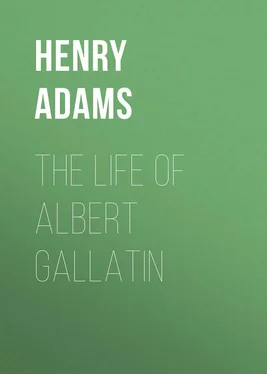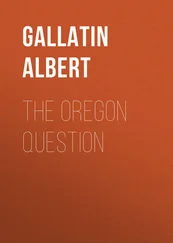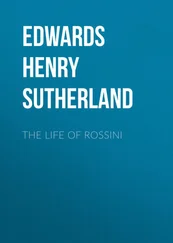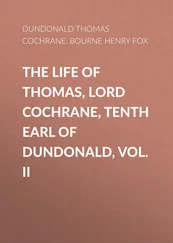Henry Adams - The Life of Albert Gallatin
Здесь есть возможность читать онлайн «Henry Adams - The Life of Albert Gallatin» — ознакомительный отрывок электронной книги совершенно бесплатно, а после прочтения отрывка купить полную версию. В некоторых случаях можно слушать аудио, скачать через торрент в формате fb2 и присутствует краткое содержание. Жанр: foreign_antique, foreign_prose, на английском языке. Описание произведения, (предисловие) а так же отзывы посетителей доступны на портале библиотеки ЛибКат.
- Название:The Life of Albert Gallatin
- Автор:
- Жанр:
- Год:неизвестен
- ISBN:нет данных
- Рейтинг книги:4 / 5. Голосов: 1
-
Избранное:Добавить в избранное
- Отзывы:
-
Ваша оценка:
- 80
- 1
- 2
- 3
- 4
- 5
The Life of Albert Gallatin: краткое содержание, описание и аннотация
Предлагаем к чтению аннотацию, описание, краткое содержание или предисловие (зависит от того, что написал сам автор книги «The Life of Albert Gallatin»). Если вы не нашли необходимую информацию о книге — напишите в комментариях, мы постараемся отыскать её.
The Life of Albert Gallatin — читать онлайн ознакомительный отрывок
Ниже представлен текст книги, разбитый по страницам. Система сохранения места последней прочитанной страницы, позволяет с удобством читать онлайн бесплатно книгу «The Life of Albert Gallatin», без необходимости каждый раз заново искать на чём Вы остановились. Поставьте закладку, и сможете в любой момент перейти на страницу, на которой закончили чтение.
Интервал:
Закладка:
Bad as the treaty was, both in its omissions and in its admissions, as a matter of foreign relations, these defects were almost trifles when compared with its mischievous results at home. It thrust a sword into the body politic. So far as it went, and it went no small distance, it tended to overturn the established balance of our neutrality and to throw the country into the arms of England. Nothing could have so effectually arrayed the two great domestic parties in sharply defined opposition to each other, and nothing could have aroused more bitterness of personal feeling. In recent times there has been a general disposition to explain away and to soften down the opinions and passions of that day; to throw a veil over their violence; to imagine a possible middle ground, from which the acts and motives of all parties will appear patriotic and wise, and their extravagance a mere misunderstanding. Such treatment of history makes both parties ridiculous. The two brilliant men who led the two great divisions of national thought were not mere declaimers; they never for a moment misunderstood each other; they were in deadly earnest, and no compromise between them ever was or ever will be possible. Mr. Jefferson meant that the American system should be a democracy, and he would rather have let the world perish than that this principle, which to him represented all that man was worth, should fail. Mr. Hamilton considered democracy a fatal curse, and meant to stop its progress. The partial truce which the first Administration of Washington had imposed on both parties, although really closed by the retirement of Mr. Jefferson from the Cabinet, was finally broken only by the arrival of Mr. Jay’s treaty. From that moment repose was impossible until one party or the other had triumphed beyond hope of resistance; and it was easy to see which of the two parties must triumph in the end.
One of the immediate and most dangerous results of the British treaty was to put the new Constitution to a very serious test. The theory which divides our government into departments, executive, legislative, and judicial, and which makes each department supreme in its own sphere, could not be worked out with even theoretical perfection; the framers of the Constitution were themselves obliged to admit exceptions in this arrangement of powers, and one of the most serious exceptions related to treaties. The Constitution begins by saying, “ All legislative powers herein granted shall be vested in a Congress of the United States, which shall consist of a Senate and House of Representatives,” and proceeds to give Congress the express power “to make all laws which shall be necessary and proper for carrying into execution the foregoing powers, and all other powers vested by this Constitution in the government of the United States or in any department or officer thereof.” But on the other hand the Constitution also says that the President “shall have power, by and with the advice and consent of the Senate, to make treaties,” and finally it declares that “this Constitution, and the laws of the United States which shall be made in pursuance thereof, and all treaties made, or which shall be made, under the authority of the United States shall be the supreme law of the land,” State laws or constitutions to the contrary notwithstanding.
Here was an obvious conflict of powers, resulting from an equally obvious divergence of theory. Congress possessed all legislative powers. The President and Senate possessed the power to make treaties, which were, like the Constitution and the laws of Congress, the supreme law of the land. Congress, then, did not possess all legislative powers. The President alone, with two-thirds of the Senate, could legislate.
The British treaty contained provisions which could only be carried into execution by act of Congress; it was, therefore, within the power of the House of Representatives to refuse legislation and thus practically break the treaty. The House was so evenly divided that no one could foresee the result, when Edward Livingston began this famous debate by moving to call on the President for papers, in order that the House might deliberate with official knowledge of the conditions under which the treaty was negotiated.
The Federalists met this motion by asserting that under the Constitution the House had no right to the papers, no right to deliberate on the merits of the treaty, no right to refuse legislation. In Mr. Griswold’s words, “The House of Representatives have nothing to do with the treaty but provide for its execution.” Untenable as this ground obviously was, and one which no respectable legislative body could possibly accept, it was boldly taken by the Federalists, who plunged into the contest with their characteristic audacity and indomitable courage, traits that compel respect even for their blunders.
The debate began on March 7, 1796, and on the 10th Mr. Gallatin spoke, attacking the constitutional doctrine of the Federalists and laying down his own. He claimed for the House, not a power to make treaties, but a check upon the treaty-making power when clashing with the special powers expressly vested in Congress by the Constitution; he showed the existence of this check in the British constitution, and he showed its necessity in our own, for, “if the treaty-making power is not limited by existing laws, or if it repeals the laws that clash with it, or if the Legislature is obliged to repeal the laws so clashing, then the legislative power in fact resides in the President and Senate, and they can, by employing an Indian tribe, pass any law under the color of treaty.”
The argument was irresistible; it was never answered; and indeed the mere statement is enough to leave only a sense of surprise that the Federalists should have hazarded themselves on such preposterous ground. Some seventy years later, when the purchase of Alaska brought this subject again before the House on the question of appropriating the purchase-money stipulated by the treaty, the Administration abandoned the old Federalist position; the right of the House to call for papers, to deliberate on the merits of the treaty, even to refuse appropriations if the treaty was inconsistent with the Constitution or with the established policy of the country, was fully conceded. The Administration only made the reasonable claim that if, upon just consideration, a treaty was found to be clearly within the constitutional powers of the government, and consistent with the national policy, then it was the duty of each co-ordinate branch of the government to shape its action accordingly. 31This claim was recognized; the House voted the money, and the controversy may be considered at an end. In 1796, on the contrary, Mr. Griswold, whose reply to Mr. Gallatin’s argument was considered the most effective, and who never shrank from a logical conclusion however extreme, admitted and asserted that the legislative power did reside in the President and Senate to the exclusion of the House, and added, “Allowing this to be the case, what follows? – that the people have clothed the President and Senate with a very important power.”
On this theme the debate was continued for several weeks; but the Federalists were in a false position, and were consequently overmatched in argument. Madison, W. C. Nicholas, Edward Livingston, and many other members of the opposition, in speeches of marked ability, supported the claim of their House. The speakers on the other side were obliged to take the attitude of betraying the rights of their own body in order to exaggerate the powers of the Executive, and as this practice was entirely in accordance with the aristocratic theory of government, they subjected themselves to the suspicion at least of acting with ulterior motives.
On the 23d March, Mr. Gallatin closed the debate for his side of the House by a second speech, in which he took more advanced ground. He had before devoted his strength to overthrowing the constitutional theory of his opponents; he now undertook the far more difficult task of establishing one of his own. The Federalist side of the House was not the temperate side in this debate, and Mr. Gallatin had more than one personal attack to complain of, but he paid no attention to personalities, and went on to complete his argument. Inasmuch as the Federalists characterized their opponents on this question as disorganizers, disunionists, and traitors, and even to this day numbers of intelligent persons still labor under strong prejudice against the Republican opposition to Washington’s Administration, a few sentences from Mr. Gallatin’s second speech shall be inserted here to show precisely how far he and his party did in fact go:
Читать дальшеИнтервал:
Закладка:
Похожие книги на «The Life of Albert Gallatin»
Представляем Вашему вниманию похожие книги на «The Life of Albert Gallatin» списком для выбора. Мы отобрали схожую по названию и смыслу литературу в надежде предоставить читателям больше вариантов отыскать новые, интересные, ещё непрочитанные произведения.
Обсуждение, отзывы о книге «The Life of Albert Gallatin» и просто собственные мнения читателей. Оставьте ваши комментарии, напишите, что Вы думаете о произведении, его смысле или главных героях. Укажите что конкретно понравилось, а что нет, и почему Вы так считаете.












